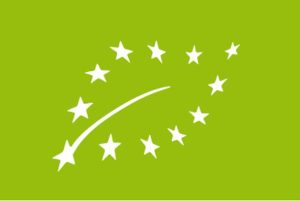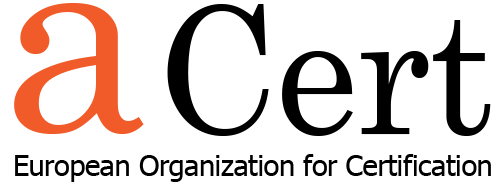how can we help you?
Contact us at the A CERT office nearest to you or submit a business inquiry online.
Having values, we offer strictly professional services and through the recognition and reputation of the A CERT, our associated companies and structures and strategic collaborators, we add value to the products, services, institutes and organizations giving them a competitive advantage and making them capable of achieving a dominant position in national and international level.

how can we help you?
Contact us at the A CERT office nearest to you or submit a business inquiry online.
Having values, we offer strictly professional services and through the recognition and reputation of the A CERT, our associated companies and structures and strategic collaborators, we add value to the products, services, institutes and organizations giving them a competitive advantage and making them capable of achieving a dominant position in national and international level.

Commission Implementing Regulation (EU) 2021/2119
of 1 December 2021
laying down detailed rules on certain records and declarations required from operators and groups of operators and on the technical means for the issuance of certificates in accordance with Regulation (EU) 2018/848 of the European Parliament and of the Council and amending Commission Implementing Regulation (EU) 2021/1378 as regards the issuance of the certificate for operators, groups of operators and exporters in third countries
Article 1
Issuance of the certificate referred to in Article 35(1) of Regulation (EU) 2018/848 in electronic form
The certificate referred to in Article 35(1) of Regulation (EU) 2018/848 shall be issued as follows:
The certificate referred to in Article 35(1) of Regulation (EU) 2018/848 shall bear a qualified electronic seal as defined in Article 3, point (27), of Regulation (EU) No 910/2014 of the European Parliament and of the Council ( 1 ).
Article 2
Records to be kept by operators and groups of operators
Article 3
Declarations and other communications necessary for official controls
Operators and groups of operators shall include the following information in their declarations or communications pursuant to Article 39(1), point (b), of Regulation (EU) 2018/848 to the competent authority, control authority or control body that performs official controls:
Those declarations and communications shall be updated where appropriate.
Article 4
Amendment to Implementing Regulation (EU) 2021/1378
Implementing Regulation (EU) 2021/1378 is amended as follows:
‘Article 1, second paragraph, point (a)(ii), shall apply from 1 January 2023.’.
Article 5
Entry into force and application
This Regulation shall enter into force on the third day following that of its publication in the Official Journal of the European Union.
It shall apply from 1 January 2022.
Article 1, point (b), shall apply from 1 January 2023.
Article 1, second paragraph, shall apply from 1 July 2023.
This Regulation shall be binding in its entirety and directly applicable in all Member States.
Applications Documents
Council Regulation

This regulation establishes the legal framework for all levels of production, distribution, control and labeling of organic products which may be offered and traded in the EU. It determines the continued development of organic production through the provision of clearly defined goals and principles. General production, control and labeling guidelines were established by the Council Regulation and can therefore only be changed by the European Council of Agricultural Ministers. The previous Regulation (EEC) No. 2092/91 is simultaneously repealed.
The new labeling regulations in connection with the obligatory use of the EU organic logo were postponed until 1 July 2010 by an amendment to the Council Regulation.
Area of applicability
The Council Regulation applies to the following agricultural products, including aquaculture and yeast:
- Living or unprocessed products
- Processed foods
- Animal feed
- Seeds and propagating material
Collection of wild plants and seaweed is also included in the scope of this Regulation
Not included in its scope:
- Products from hunting and fishing of wild animals.
Commission Regulations
The following Commission Regulations have been adopted thus far:
- Commission Regulation (EC) No. 889/2008 of 5 September 2008 with detailed rules on production, labeling and control including its amendment on production rules
- for organic yeast, Commission Regulation (EC) 1254/2008 of 15 December 2008
- for organic aquaculture animal and seaweed production, Commission Regulation(EC) No 710/2009 of 5 August 2009
- Commission Regulation (EC) No. 1235/2008 of 8 December 2008 with detailed rules concerning import of organic products from third countries
In Commission Regulation (EC) No. 889/2008 all levels of plant and animal production are regulated, from the cultivation of land and keeping of animals to the processing and distribution of organic foods and their control. They go into great technical detail and are, for the most part, an extension of the original organic Regulation, except where this was regulated differently in the Council Regulation.
Multiple Annexes are attached to the Commission Regulation. Within these one can find the following:
- Products permitted in organic farming, such as fertilisers, soil ameliorants and pesticides
- Minimum requirements on the size of housing and exercise areas including pastures for organic livestock, depending on animal species and development stage.
- Non-organic animal feed, feed additives and processing aids for the production of compound feed and premixtures permitted in organic farming.
- Non-organic ingredients, additives and processing aids permitted in organic food production (including yeast production).
- Requirements on the Community logo.
These Annexes and other parts of this Commission Regulation can be supplemented by the Commission so as to keep them up to date in regard to continuing developments in technology, science and the organic market.
In order to facilitate the implementation of the new rules and to incorporate some expiring exemptions of the previous organic Regulation, transitional measures were laid down.
In addition to EU legislation on organic farming and organic production, organically operating farmers and processors must also adhere to generally applicable rules on agricultural production and processing of agricultural products. That means that all generally applicable rules on the regulation of the production, processing, marketing, labeling and control of agricultural products also apply to organic foods.
